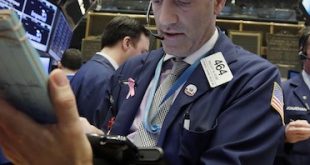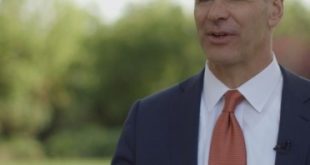Asia’s frontier markets are growing very quickly, but every one of them still has plenty of challenges to overcome. Hear what Vikas Cheranewal, Senior Executive Director of the Emerging Markets group at Franklin Templeton Asset Management, said about infrastructure, energy, and politics in Pakistan, Sri Lanka, and Vietnam.
Read More »Mongolia: Investors Welcome
After domestic concerns over foreign direct investment (FDI) and slumping metal prices slowed Mongolia’s economy to a crawl in 2015, Prime Minister Saikhanbileg Chimed wants to reassure investors that they are welcome in his country. “My message is a simple one. Mongolia is back and open for business,” Saikhanbileg said in a speech at the AIC 2016 on April 7. Opposition groups have protested against some major mining projects, causing delays that have now been resolved,...
Read More »Sri Lanka’s Finance Minister: “We Are Back in Business”
With 6 percent GDP growth forecast for this year, up from 4.8 percent in 2015, “Sri Lanka is on the move,” the country’s Finance Minister, Ravi Karunanayake, said in a keynote address at the Credit Suisse 2016 Asian Investment Conference (AIC). Since a new president and prime minister took office at the beginning of 2015, the government has worked to get the country back onto a path of strong economic growth, Karunanayake said. “It was necessary for fiscal consolidation to take...
Read More »Good Morning, Vietnam
Quick: Name the Asian country whose cheap labor costs have attracted droves of foreign manufacturers, driving an explosion in export-driven economic activity that is now transitioning to more moderate, consumer-based growth. Did you say China? Vietnam would have been correct, too. As labor costs have risen dramatically in China over the last several years, a growing number of manufacturers have moved operations from the Middle Kingdom to Vietnam or even decided to set up shop...
Read More »Next Up for Central Banks: Infrastructure Investments?
In the years following the global financial crisis, the world’s leading economies have found relief through aggressive monetary policy. But with interest rates slashed to historic lows and central bank balance sheets significantly larger as a percent of GDP than they were before the financial crisis, policymakers will need alternatives to interest rate cuts and conventional quantitative easing when the next recession comes along. U.S. central bankers have cut real interest rates between...
Read More »To IPO or Not to IPO: That Is the Question
Investing in companies such as Facebook before they went public has proven very lucrative for many well-connected investors – and Facebook’s decision to stay private for eight years before going public certainly worked out well for the social media giant. Bill Gurley, a general partner at venture capital firm Benchmark Capital, believes that early success stories such as Facebook and many other high-flying technology companies have made it fashionable for CEOs to resist public offerings....
Read More »Putting Data to Work: Lessons from “Moneyball”
Baseball has always been a statistics-driven game. In 2002, however, the Oakland Athletics, led by then-Assistant Manager Paul DePodesta and General Manager Billy Beane, pioneered a completely new approach to analyzing player data that helped a team with one of the lowest payrolls in the league win 103 games. Most recently the vice president of player development for the New York Mets, in January 2016, DePodesta didn’t just switch teams—he switched sports, becoming chief strategy officer of...
Read More »What Being Wrong Can Teach Us About Being Right
No one is right all the time, but one can learn to be wrong less often. Watch Michael Mauboussin, Credit Suisse’s Head of Global Financial Strategies, explain how overcoming naïve realism and questioning the status quo can help leaders of all kinds make better choices. He discussed the above and more at the 2016 Thought Leader Forum.
Read More »Are You Smarter than an Algorithm?
Do you trust software to make decisions for you? Would you trust it if you’d written the software yourself? Consider the case of Cade Massey, a professor at University of Pennsylvania’s Wharton School, and Rufus Peabody, a former student and professional sports gambler. Together, the two men have built a well-known system for predicting the outcomes of college and professional football games known as the Massey-Peabody rankings. Their picks rely purely on statistics – except the one day they...
Read More »Is Globalization Finished?
The shock of Great Britain’s vote to leave the European Union has already thrown global financial markets into disarray and cost Prime Minister David Cameron his job, but it will take years before the geopolitical impact of the Brexit referendum fully materializes. The political uncertainty generated by the “Leave” vote will reach far beyond 10 Downing Street, potentially into Scotland, Northern Ireland, Eurozone capitals, and beyond. It may even mark the beginning of the end of...
Read More » Credit Suisse
Credit Suisse










